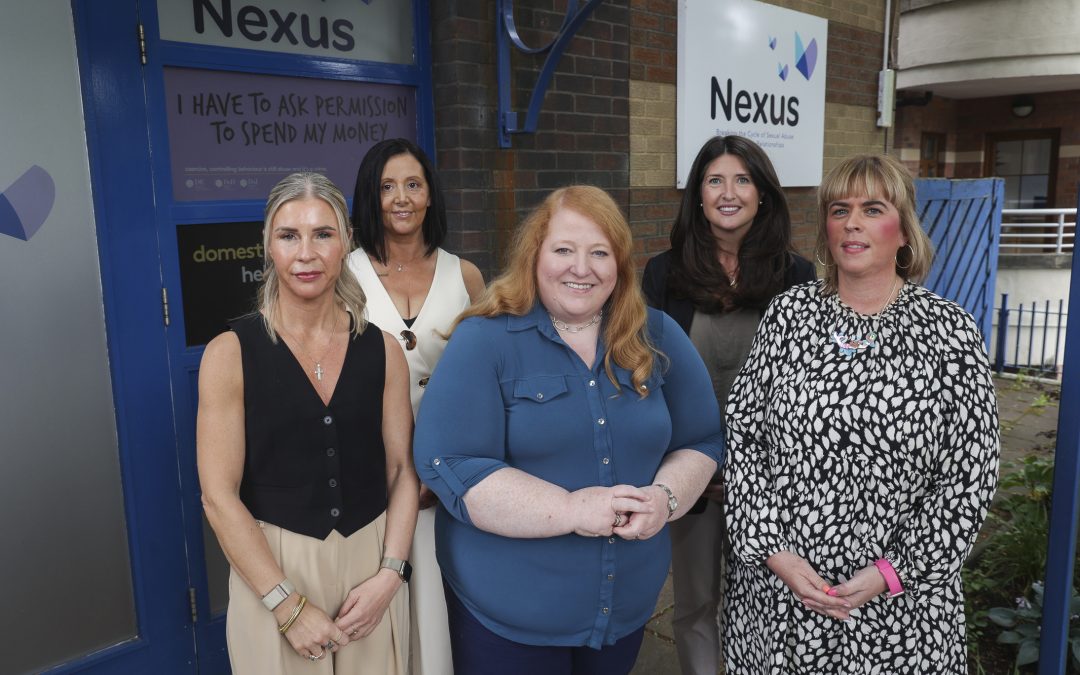Naomi Long has visited the headquarters of Nexus NI to see first hand the benefits of a pilot programme which was jointly funded by the Department of Justice and Department of Health. The Crisis De-escalation Service provides early intervention counselling to help prevent long-term psychological harm to victims of sexual violence and abuse. As well as helping survivors on their journey to recovery, it also aims to reduce strain on general practice, mental health services and emergency departments.
The Minister said: “I would like to pay tribute to those who are involved in delivering this innovative service. Sexual violence is one of the most invasive and harrowing crimes anyone can endure, and the impact can be catastrophic for victims; we know that proper support and therapy is crucial to help survivors navigate their trauma. This early intervention service ensured survivors were not left unsupported while waiting for longer-term counselling. It provided a structured, survivor-centred approach that promoted emotional safety and stability during a crucial recovery period. This has been a wonderful opportunity to learn more about the valuable work being done by Nexus and the important support being offered to survivors of domestic and sexual abuse through the Crisis De-escalation Service.”
The service is one of 14 projects which received financial support through the Domestic and Sexual Abuse Small Grant scheme, with £39,780 awarded to Nexus NI.
The Crisis De-escalation Service was developed to provide immediate intervention designed to help stabilise survivors to enable them to then begin to process their trauma. The pilot used Brief Solution Focused Therapy (BSFT), a therapy which focuses on practical coping strategies during a key recovery window.
Nexus NI CEO Joanne Barnes said: “This therapy helps reduce acute trauma symptoms and mitigates long-term psychological issues, such as PTSD and depression and helps foster resilience. It has helped bridge a critical gap in Northern Ireland’s response to sexual abuse and violence by helping access timely psychological care. The success of this project shows the need for crisis support at various stages of the victim journey, including in the immediate aftermath of an incident.”





